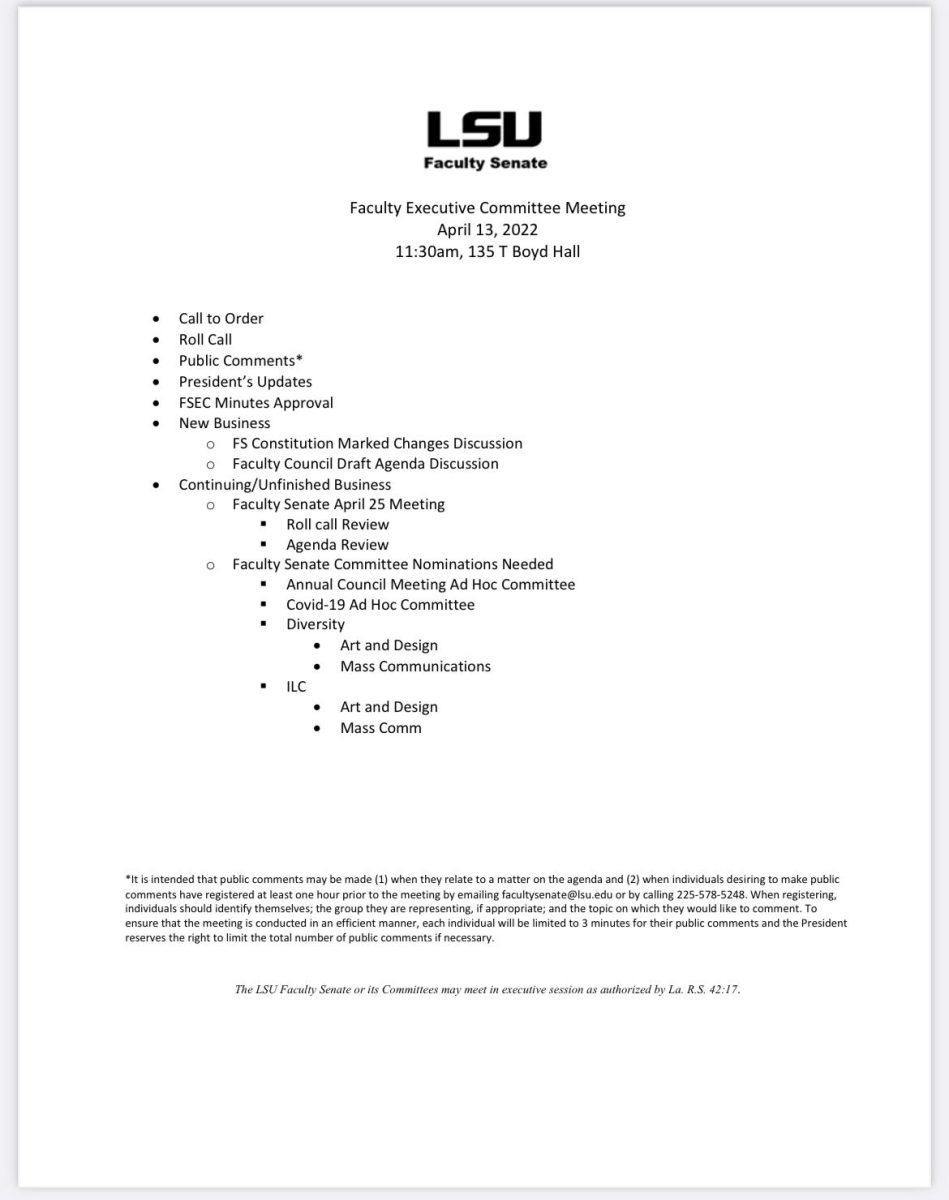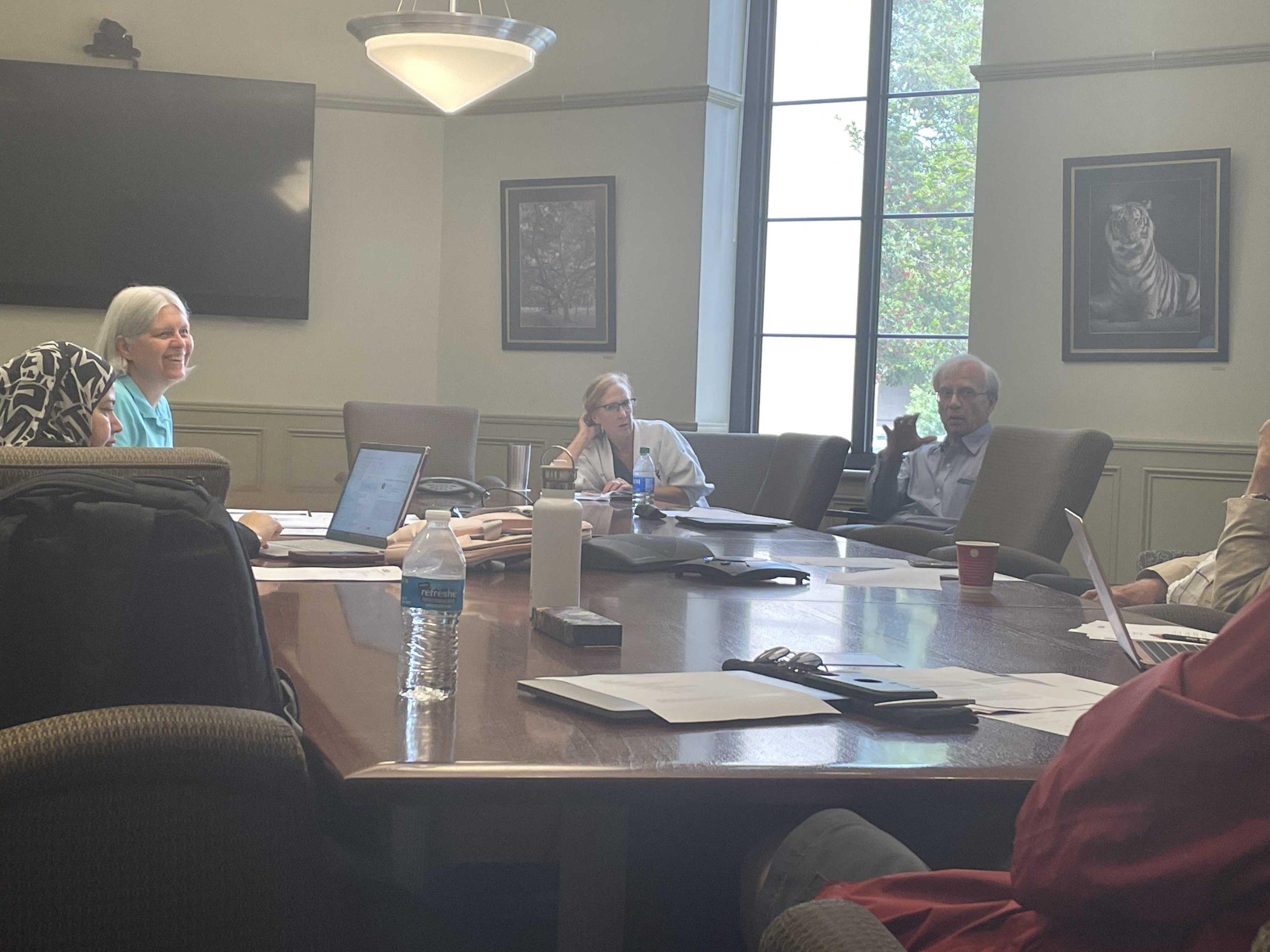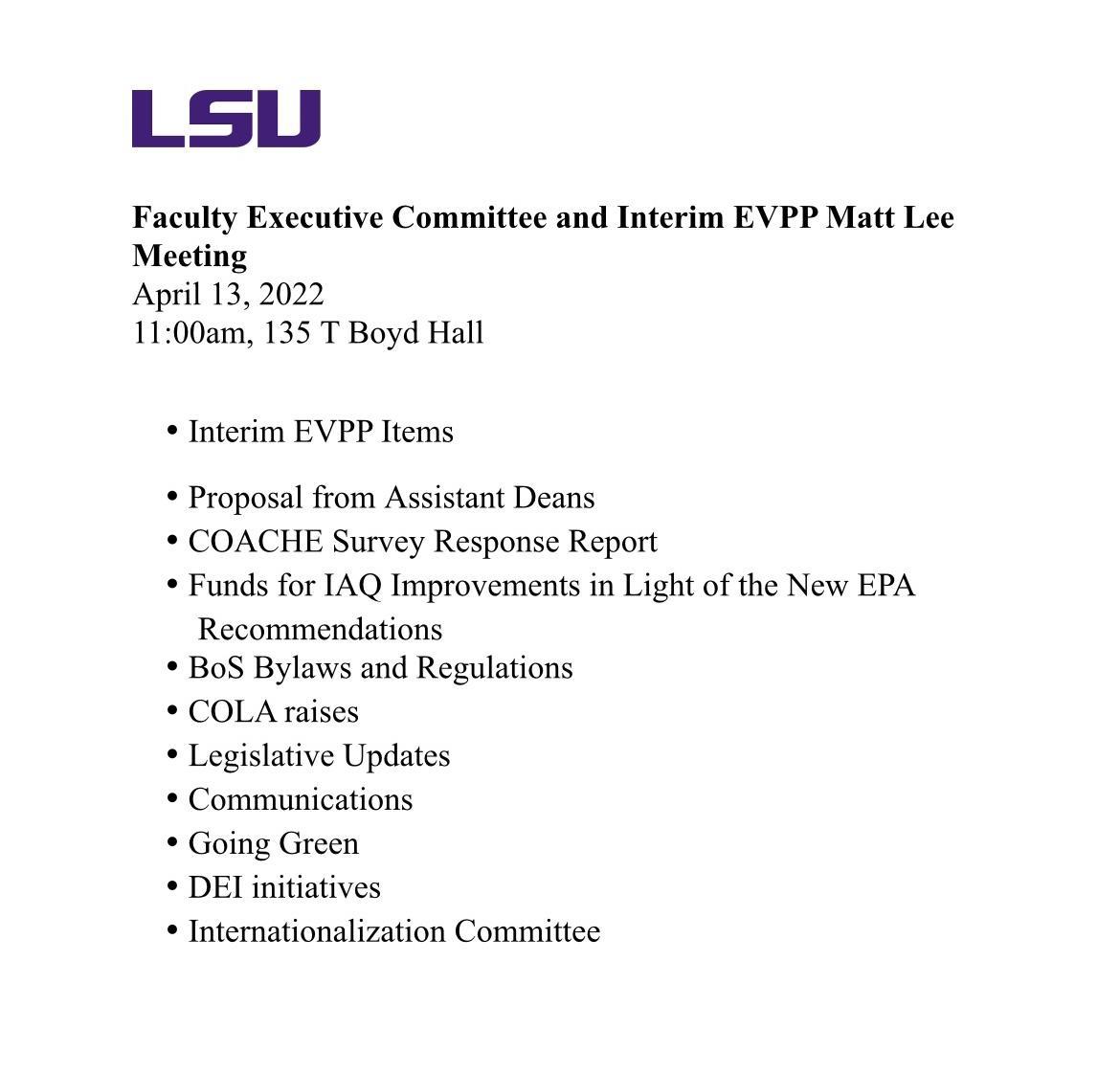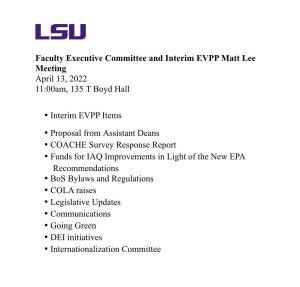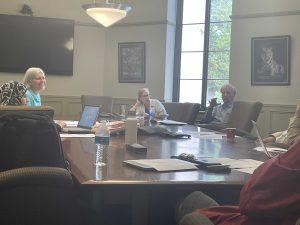LSU Faculty Senate leaders again violated Louisiana’s open meetings law when they met on Wednesday without giving proper public notice that they intended to meet.
The violation occurred during an unadvertised meeting of the Faculty Senate Executive Committee with Interim Provost Matt Lee before the FSEC’s weekly meeting.
Since the Faculty Senate and its executive committee are public bodies held to the state’s open meetings law, they are required to give notice of their meetings and to post their meeting agendas 24 hours in advance. They also must conduct their meetings according to their agenda.
The agenda for the Committee meeting on Wednesday said that the meeting was set to begin at 11:30 a.m. in Thomas Boyd Hall. But when a Reveille reporter arrived at 11:28 a.m., a meeting was underway and a student worker outside the conference room said that members of the FSEC began a meeting 10 to 20 minutes beforehand.
Emily Hatfield, Lee’s executive assistant, shared an agenda for the unnoticed meeting that was slated to begin at 11 a.m. That agenda was never made public by the Faculty Senate.
Lee and members of the FSEC discussed at least three items on the meeting agenda before the public meeting was meant to begin.
The FSEC and Faculty Senate regularly receive updates from members of the administration at their public meetings, so it is unclear why this meeting was off the books.
When Faculty Senate President Mandi Lopez gave her president’s report, she said, “As far as my updates, I think we’ve just covered them,” suggesting that a significant portion of the meeting was conducted behind closed doors.
“It may not seem like a big deal to the faculty members or even to the students, but it is a big deal,” said Scott Sternberg, an attorney with expertise in the state’s open meetings law. “Because everyone has to follow the law. You can’t just speed because the speed limit is not something that you like, or a sign that you didn’t see. The open meetings law applies to the Faculty Senate.”
Open meeting laws are meant to ensure the public’s access to information and the decisions made by government bodies, including state agencies. LSU’s Faculty Senate, Faculty Senate Executive Committee and Faculty Council fall under that definition since they derive their authority from the LSU Board of Supervisors, which is also a public body.
FSEC members were seemingly confused by what constituted a meeting and their requirement to follow the agenda. Jeffrey Roland, an at-large member of the FSEC, told the reporter that the public meeting had not yet begun when she entered the room.
Marwa Hassan, the Faculty Senate secretary, said that the body was operating under instructions from the LSU General Counsel’s office. Hassan said that her understanding was that it was not an FSEC meeting, but “a meeting hosted by Provost Lee and the FSEC is invited to it.”
Hassan added that the FSEC is slated to hold a similar meeting with LSU Vice President for Finance Donna Torres.
Roland said that the Committee was acting under legal advice relayed through Lopez.
“The FSEC takes adherence to the open meetings law very seriously. When we met with Provost Lee last week, we believed that we were acting in accordance with that law,” Roland said in an email. “We believed this because it was our understanding that we had been advised by the LSU General Counsel’s office that these meetings were not subject to the open meetings law, a legal opinion that in my recollection was conveyed to us by President Lopez after consultation with the General Counsel’s office. In short, we believed ourselves to be acting on the advice of legal counsel.”
Kenneth McMillin, past-president of the Faculty Senate, defended the executive committee over email after the meeting.
He said he didn’t believe the meeting should have been public in the first place, and that media were allowed inside out of “politeness.”
However, if Lopez would have asked the reporter to leave without following proper procedure to go into executive session, then that would have also been illegal.
Louisiana open meetings law states that “Meeting” means the “convening of a quorum of a public body to deliberate or act on a matter over which the public body has supervision, control, jurisdiction, or advisory power.”
Under the law’s definition, the meeting should have been open to the public. The meeting also should have been noticed, according to Sternberg.
Sternberg said that even if a meeting is exempt from being open, the body has to give notice to the public 24 hours in advance that the meeting is occurring and when and where the meeting is being held.
By holding an unnoticed meeting of a public body, the FSEC violated the state’s open meeting law.
This isn’t the first time the public body has come under fire for violating the open meetings law. The Faculty Senate illegally kicked out non-Senate members, including a Reveille reporter, from a public meeting in November.
Starting in December, meetings have been attended by a lawyer from the LSU General Counsel’s Office to answer any legal questions that pop up.
In March, the body underwent open meetings law training as part of an agreement the university came to with the Louisiana Attorney General’s office stemming from a complaint the attorney general received about November’s illegal meeting.
The training addressed both the definition of a public meeting and the necessity of notices.
In the wake of the training, the body has discussed seeking an exemption from the state’s open meetings law, something that General Counsel Winston DeCuir advised against.
Lopez did not respond to The Reveille’s request for a comment.


